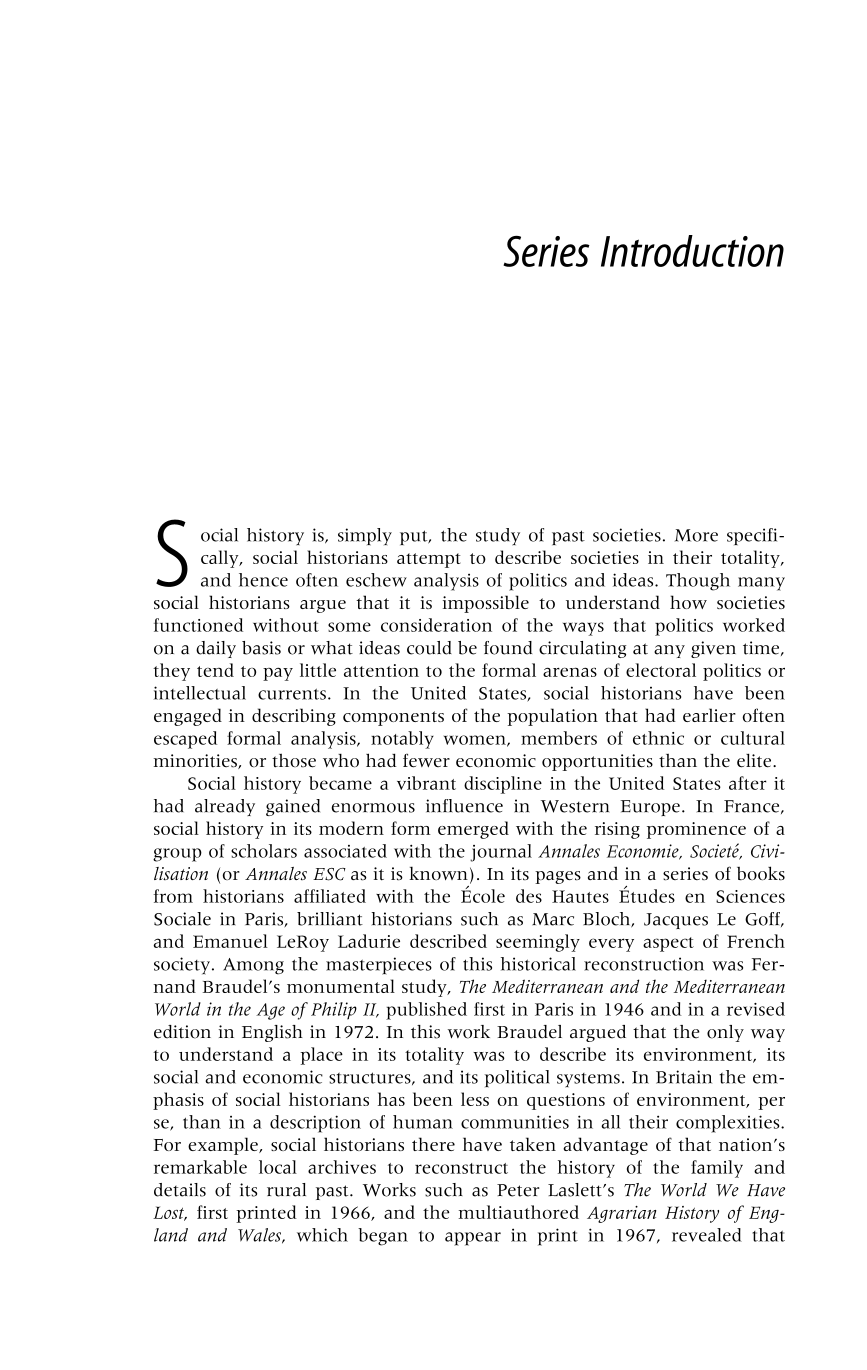Series Introduction
S
ocial history is, simply put, the study of past societies. More specifi-
cally, social historians attempt to describe societies in their totality,
and hence often eschew analysis of politics and ideas. Though many
social historians argue that it is impossible to understand how societies
functioned without some consideration of the ways that politics worked
on a daily basis or what ideas could be found circulating at any given time,
they tend to pay little attention to the formal arenas of electoral politics or
intellectual currents. In the United States, social historians have been
engaged in describing components of the population that had earlier often
escaped formal analysis, notably women, members of ethnic or cultural
minorities, or those who had fewer economic opportunities than the elite.
Social history became a vibrant discipline in the United States after it
had already gained enormous influence in Western Europe. In France,
social history in its modern form emerged with the rising prominence of a
group of scholars associated with the journal Annales Economie, Societe, Civi-
lisation (or Annales ESC as it is known). In its pages and in a series of books
from historians affiliated with the Ecole des Hautes Etudes en Sciences
Sociale in Paris, brilliant historians such as Marc Bloch, Jacques Le Goff,
and Emanuel LeRoy Ladurie described seemingly every aspect of French
society. Among the masterpieces of this historical reconstruction was Fer-
nand Braudel’s monumental study, The Mediterranean and the Mediterranean
World in the Age of Philip II, published first in Paris in 1946 and in a revised
edition in English in 1972. In this work Braudel argued that the only way
to understand a place in its totality was to describe its environment, its
social and economic structures, and its political systems. In Britain the em-
phasis of social historians has been less on questions of environment, per
se, than in a description of human communities in all their complexities.
For example, social historians there have taken advantage of that nation’s
remarkable local archives to reconstruct the history of the family and
details of its rural past. Works such as Peter Laslett’s The World We Have
Lost, first printed in 1966, and the multiauthored Agrarian History of Eng-
land and Wales, which began to appear in print in 1967, revealed that




















































































































































































































































































